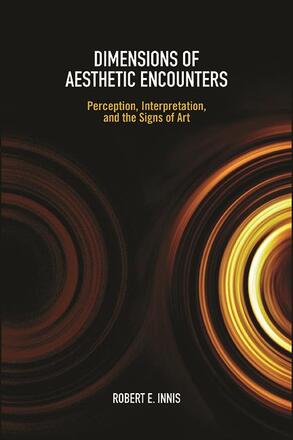
Dimensions of Aesthetic Encounters
Perception, Interpretation, and the Signs of Art
Alternative formats available from:
A novel fusing of multiple approaches and range of examples exploring the dimensions, objects, and import of aesthetic encounters.
Description
We encounter in our lives things and situations that elicit from us special forms of attention. They affect and inform us in various ways, drawing us in and holding us in their grasp or turning us away. Works of art of all sorts, and nature in its myriad manifestations, exemplify these luring and repelling qualities and potencies. Dimensions of Aesthetic Encounters explores central perceptual, interpretative, and semiotic dimensions of these encounters, combining a wide range of examples and intellectual resources from pragmatist, hermeneutical, and semiotic frameworks. Practicing a kind of "method of rotation" Robert E. Innis breaks down barriers in aesthetic theory and shows their complementary powers. Recurring themes link each chapter, throwing a powerful light on aesthetic encounters by foregrounding such pivotal notions as play, fundedness and the role of memory, the defining quality of an artwork, energies of objects, potencies, rhythm, form, presentational abstraction, medium, symbolization, intuition, role of the body, and the non-argumentative nature of art.
Robert E. Innis is Emeritus Professor of Philosophy at the University of Massachusetts Lowell and former Obel Foundation Visiting Professor at Aalborg University in Denmark. His many books include Between Philosophy and Cultural Psychology.
Reviews
"This work draws you in and builds in nothing less than a dramatic manner. Innis displays a stunning range of erudition and even when dealing with technical or intricate topics he remains accessible and, more than this, engaging and quite memorable." — Vincent Colapietro, Penn State University